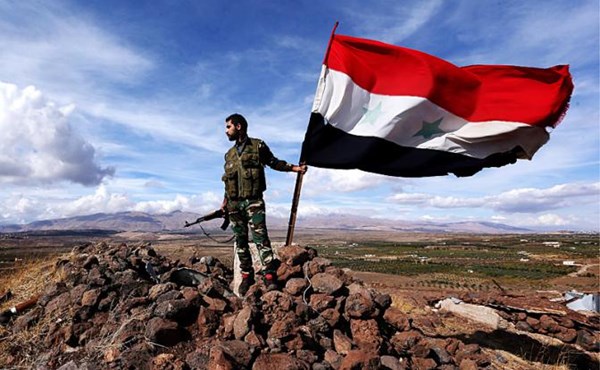Each day Syria becomes a more complicated battleground with everybody fighting everybody
While Russia was paying tribute to the deceased pilot Roman Filipov, a sharp escalation in the armed conflict began in Syria. Judging by the reports in the Russian, US and Arabic media, the forces loyal to Russia’s ally Syrian President Bashar al-Assad decided to attack the Syrian Democratic Forces (SDF). Assad’s partners were reportedly trying to capture a gas fields controlled by SDF.
They did not have to wait long for the US response. As reported by the press service of the Operation Inherent Resolve headquarters, the US-led coalition launched retaliatory airstrikes against the pro-government forces in Syria. The US said that this was done “in response to the unprovoked attack on the SDF headquarters”.
It came out later that roughly 100 people died as a result of the airstrikes. The bombing took place in the region of the city of Deir al-Zor. The US military made contact with Russia before the strike and warned them of their “retaliatory action”.
Nevertheless, both Damascus and, judging by initial statements, Moscow, have called the American attack “unmotivated aggression”. The Syrians have released an outraged statement. First Deputy Chairman of the Federation Council Defense and Security Committee Franz Klintsevich condemned the US’s airstrike on the pro-government Syrian forces in the Euphrates valley. “The actions of the US coalition do not comply with legal norms, without a doubt, this is aggression,” the senator remarked.
At the same time, Turkish President Recep Tayyip Erdogan called his Russian colleague Vladimir Putin and expressed his condolences concerning the death of the Russian pilot in Syria’s Idlib province. In addition, the two presidents discussed the possibility of holding another Russia-Iran-Turkey Syrian resolution summit. This should be considered a clear signal to the US, because the three countries clearly oppose the US and their allies in the region.
The death of the pilot may thus become a turning point in the history of the long Syrian war. All of the situational allies grouped around Russia, the US, Turkey and Iran, and who previously fought at least partially together against the Islamic State, are beginning to act exclusively in their own interests.
The escalation of the situation right now is unlikely to be coincidental. Turkey’s military operation against the Syrian Kurds, alongside both Russia and al-Assad’s refusal to help the Kurdish groups, has demonstrated that a time has come when all the participants in the conflict are striving to maximize their own sphere of influence.
While they unanimously talk about the sovereignty of Syria, they are prepared to draw new border lines within the country, and to fight with each other, occasionally using their own armed forces, but more frequently through their Syrian allies.
